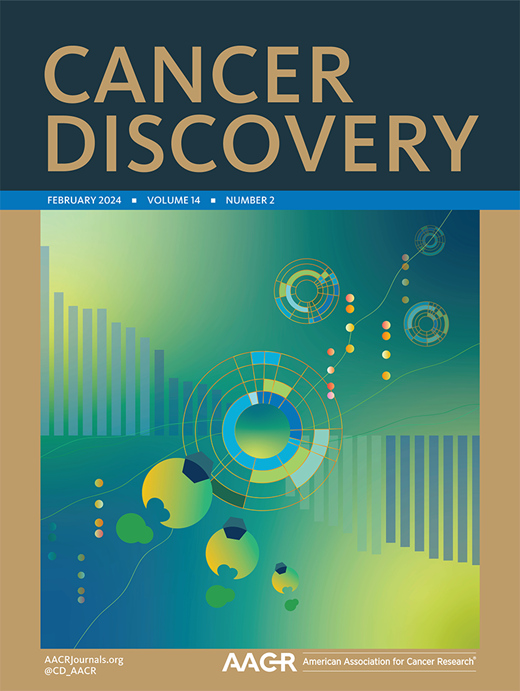Non-selective b adrenergic receptor inhibitors impair hematopoietic regeneration in mice and humans after hematopoietic cell transplants
IF 29.7
1区 医学
Q1 ONCOLOGY
引用次数: 0
Abstract
Peripheral nerves promote mouse bone marrow regeneration by activating b2 and b3 adrenergic receptor signaling, raising the possibility that non-selective b blockers could inhibit engraftment after hematopoietic cell transplants (HCTs). We observed no effect of b blockers on steady-state mouse hematopoiesis. However, mice treated with a non-selective b blocker (carvedilol), but not a b1-selective inhibitor (metoprolol), exhibited impaired hematopoietic regeneration after syngeneic or allogeneic HCTs. At two institutions, patients who received non-selective, but not b1-selective, b blockers after allogeneic HCT exhibited delayed platelet engraftment and reduced survival. This was particularly observed in patients who received post-transplant chemotherapy for graft-versus-host disease prophylaxis, which also accentuated the inhibitory effect of carvedilol on engraftment in mice. In patients who received autologous HCTs, non-selective b blockers were associated with little or no delay in engraftment. The inhibitory effect of non-selective b blockers after allogeneic HCT was overcome by transplanting larger doses of hematopoietic cells.非选择性 b 肾上腺素能受体抑制剂会损害小鼠和人类造血细胞移植后的造血再生能力
本文章由计算机程序翻译,如有差异,请以英文原文为准。
求助全文
约1分钟内获得全文
求助全文
来源期刊

Cancer discovery
ONCOLOGY-
CiteScore
22.90
自引率
1.40%
发文量
838
审稿时长
6-12 weeks
期刊介绍:
Cancer Discovery publishes high-impact, peer-reviewed articles detailing significant advances in both research and clinical trials. Serving as a premier cancer information resource, the journal also features Review Articles, Perspectives, Commentaries, News stories, and Research Watch summaries to keep readers abreast of the latest findings in the field. Covering a wide range of topics, from laboratory research to clinical trials and epidemiologic studies, Cancer Discovery spans the entire spectrum of cancer research and medicine.
 求助内容:
求助内容: 应助结果提醒方式:
应助结果提醒方式:


